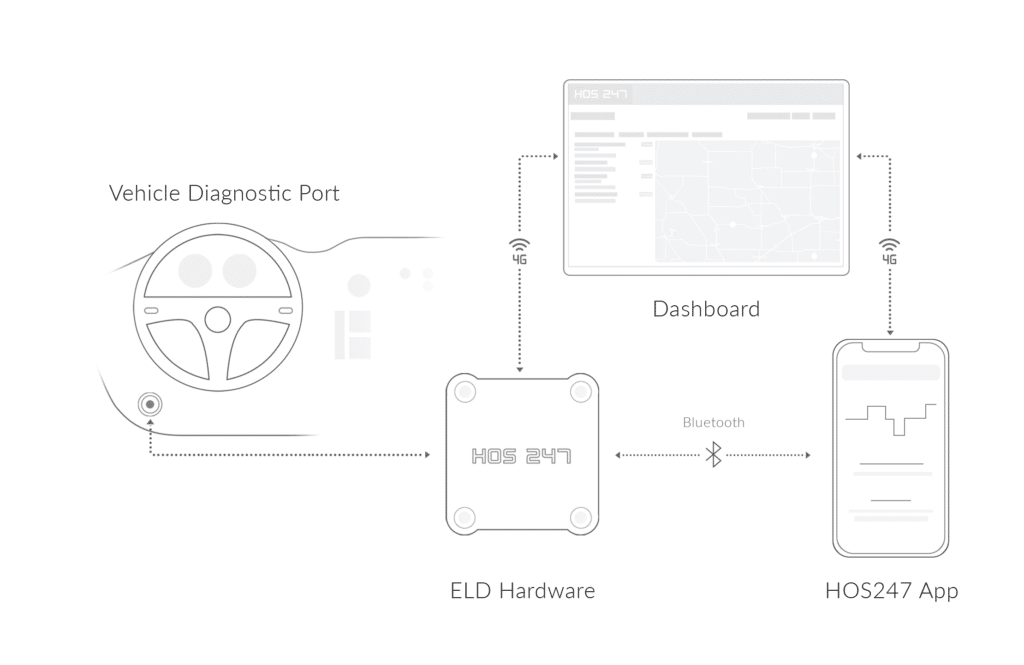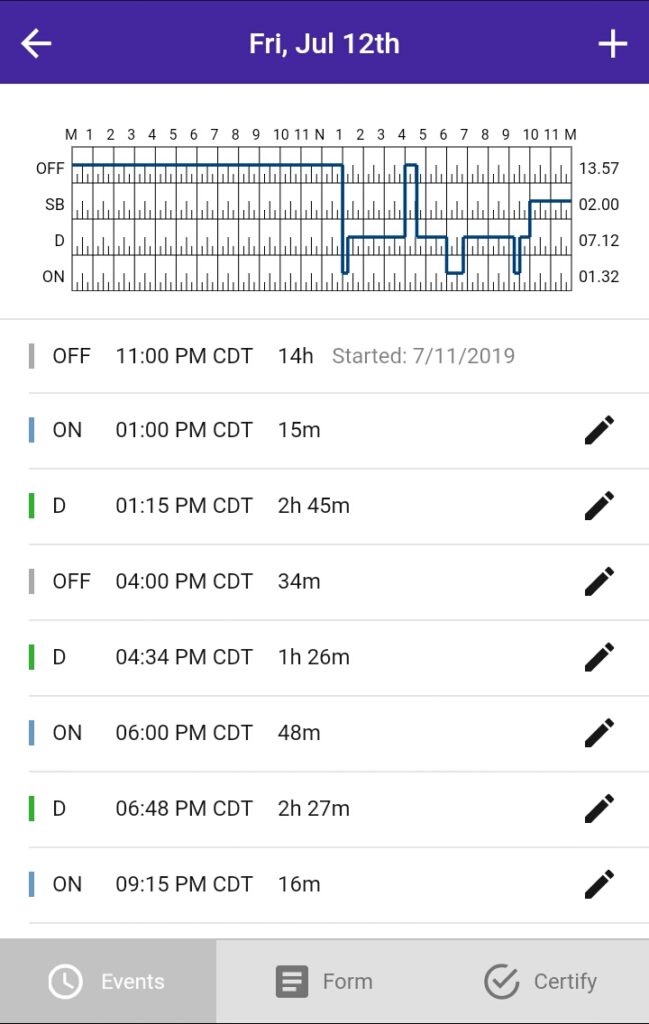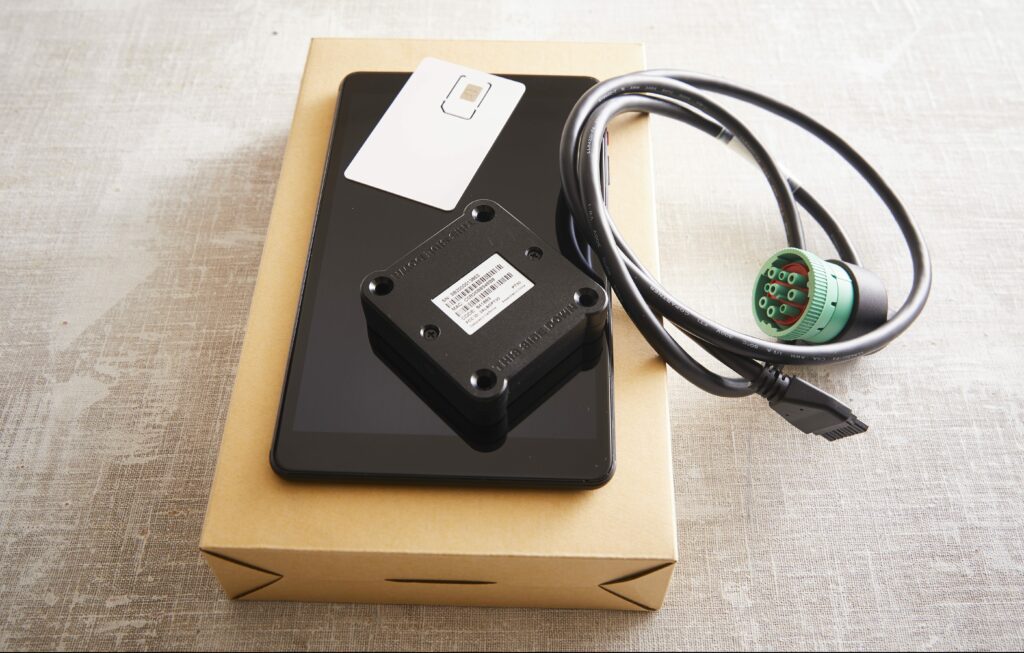The electronic logging device (ELD) mandate has transformed how the trucking industry manages hours of service (HOS) compliance. As fleets transition from paper logs and older electronic systems to modern ELD solutions, choosing the right provider becomes crucial for operational success.
Today’s ELD solutions integrate seamlessly with other critical business systems, providing real-time visibility into operations and actionable data insights. The most effective platforms combine intuitive interfaces with robust features, ensuring that both drivers and back-office staff can maximize the technology’s benefits. As the industry faces new challenges, from rising operational costs to increased regulatory scrutiny, having a reliable and comprehensive ELD solution has become more important than ever.
Do you have any questions? Talk to ELD Advisor: 650-405-3372 or Request Callback
Benefits of HOS247 ELD HOS System
HOS247 has earned its reputation as a trusted provider of electronic logbooks by delivering comprehensive solutions designed for the modern trucking industry. With a system that combines a robust logbook app, a user-friendly portal, and reliable hardware, HOS247 gives drivers and carriers everything they need to stay compliant and efficient. Highly rated on platforms like the Apple App Store and Google Play Store, HOS247’s ELD system is consistently recognized as one of the best in the industry.

HOS247’s competitive edge lies in its reliability, user experience, and tailored solutions. The platform is designed to tackle common elog challenges, including stable connectivity, accurate logging, and ease of use. Here are the key benefits of choosing HOS247:
- User-friendly software. The electronic logbook and fleet management portal are intuitive and easy to use.
- Durable hardware. Our logging devices are built to withstand the demands of daily commercial driving.
- Stable connectivity. Advanced Bluetooth technology ensures consistent communication between the device and app.
- Bring your own device system. Drivers can use their preferred phone or tablet to manage the app. This flexibility provides a cost-effective solution for fleets of all sizes, reducing upfront costs and enabling simple implementation.
- Multilingual support team. Our knowledgeable reps offer assistance in English, Spanish, Russian, and Polish every day of the week, ensuring that drivers and fleet managers can resolve issues quickly and efficiently.
- No Contract Lock-In. Month-to-month service plans allow fleets to scale their operations without long-term commitments, offering the flexibility to adapt to changing business needs.
- Hassle-free returns. Truckers can test the system risk-free with a two-week trial period. If it doesn’t meet their needs, they can return the equipment for a full refund.
- Advanced integration capabilities. Thesystem is designed to work with leading fleet management tools and freight systems, allowing fleets to manage everything from dispatch to compliance within a unified ecosystem.
HOS247 doesn’t just offer a product; it delivers peace of mind and operational efficiency, helping fleets navigate the complexities of modern logistics with confidence. Whether you’re a small owner-operator or managing a large fleet, HOS247 has you covered.
Why Switch to a Better Electronic Logbook

Choosing the right electronic logbook is crucial for fleet efficiency and compliance. As the ELD market matures, many carriers find themselves reconsidering their initial ELD choice due to common challenges:
- Unreliable support. Many providers offer limited support hours or long wait times, leaving drivers stranded when issues arise.
- Hidden costs. Some ELD providers charge extra fees for basic features or increase prices substantially after the initial contract.
- Poor connectivity. Frequent disconnections between ELD devices and logging apps cause frustration and compliance risks.
- Complex interfaces. Overly complicated systems make it difficult for drivers to perform basic logging tasks.
- Limited features. Basic ELDs often lack important fleet management capabilities that could improve operational efficiency.
When evaluating a new electronic logbook provider, consider these key factors:
- Hardware quality. The logging device should maintain a stable connection and accurately record driving time.
- System reliability. The software should work consistently across different devices and operating conditions.
- Support availability. Look for providers offering support during your active hours, not just during business hours.
- Total cost. Understand all fees, including monthly service, hardware, installation, and any additional feature costs.
- Training requirements. Choose a system that drivers can learn quickly without extensive training.
If your current ELD provider isn’t meeting your needs, it may be time to switch to a better solution. HOS247 stands out by addressing these common pain points with reliable hardware, responsive support, and transparent pricing. Our technical support team is always available when problems arise, providing real solutions instead of automated responses.

Understanding ELD Requirements and HOS Flexibility
The FMCSA regulations include both exemptions from the ELD mandate itself and exceptions to Hours of Service rules. It’s crucial to understand the difference:
ELD Mandate exemptions apply to drivers who:
- Operate vehicles with an engine model year of 1999 or older.
- Maintain RODS for no more than 8 days during any 30-day period
- Conduct drive-away-tow-away operations where the vehicle being driven is the commodity
- Are operating under the short-haul exception (150 air-mile radius) and using timecards
These drivers may be required to comply with HOS regulations even if exempt from ELD use.
On the other hand, hours of service exceptions provide flexibility within the regular HOS rules:
- Adverse driving conditions. When unexpected weather or road conditions arise that were not known before the trip began, drivers may extend their 11-hour driving limit and 14-hour driving window by up to 2 hours.
- Emergency conditions. During declared emergencies, drivers providing direct assistance may temporarily disregard HOS regulations. The emergency must be officially declared by federal, state, or local authorities.
- 30-minute break exception. Short-haul drivers operating within 150 air-miles and returning to their work location within 14 hours are not required to take the 30-minute break.
HOS247’s electronic logging system is programmed to accommodate these various rules and exceptions, helping drivers:
- Accurately track their time when operating under different exceptions.
- Maintain proper documentation of exemption use.
- Record appropriate annotations when required.
- Generate compliant logs for roadside inspections.
The system also helps fleet managers monitor proper use of exemptions and exceptions across their operations, reducing compliance risks and ensuring proper documentation is maintained.
Implementation and Best Practices
Successful ELD implementation requires careful planning and systematic execution. Fleet managers must consider multiple factors beyond simply choosing a device and installing it in their vehicles. A well-planned implementation strategy considers both immediate compliance needs and long-term operational benefits.
When selecting an ELD solution, fleets should focus on several critical factors:
- FMCSA registration. Verify the solution is listed on the FMCSA registry and meets all technical specifications.
- Hardware compatibility. Ensure the ELD works with your entire fleet, including different engine types and model years.
- Total cost analysis. Look beyond the initial purchase price to understand ongoing costs, including monthly fees, training, and potential upgrades.
Training represents one of the most crucial elements of successful implementation. A comprehensive training program should include hands-on device operation, troubleshooting procedures, and compliance requirements. Drivers need to understand not just how to operate the ELD, but also how to handle common situations like manual entries and device malfunctions. Back office staff require training on the management portal, reporting tools, and compliance monitoring procedures.
Implementation challenges often arise even with careful planning. Common obstacles include:
- Technical issues. Device installation problems and connectivity interruptions that require immediate resolution.
- User resistance. Driver adaptation to new technology, which can be addressed through proper training and support.
- System integration. Connecting ELD data with existing fleet management tools while maintaining data integrity.

Maintaining Compliance and Avoiding Violations
Understanding and preventing HOS violations requires a proactive approach to compliance management. Successful fleets combine technology, training, and systematic processes to maintain their safety records and avoid costly violations.
The most frequent HOS violations typically stem from misunderstanding regulations or improper logging procedures. Fleet managers should focus particular attention on form and manner violations, false logs, and hours rule violations. These issues can be addressed through proper training and monitoring systems that alert drivers before violations occur.
Prevention requires a multi-faceted approach combining:
- Real-time monitoring. Watch driver hours and receive early warning alerts to prevent violations.
- Regular audits. Review logs daily to identify patterns and address systematic issues.
- Driver communication. Maintain clear channels for reporting compliance concerns and questions.
Documentation plays a crucial role in maintaining compliance. Fleets must maintain comprehensive records including six months of backup logs, ELD instruction materials, and supporting documents for load verification. This documentation becomes particularly important during DOT audits, where organized record-keeping can make the difference between a successful audit and costly violations.
A culture of continuous improvement helps fleets stay ahead of compliance challenges. Regular analysis of violation patterns, updating policies based on audit findings, and implementing targeted training programs all contribute to better compliance outcomes. Fleet managers should establish clear metrics for measuring safety improvements and regularly review progress toward compliance goals.
Success in maintaining compliance requires commitment from every level of the organization. From drivers to dispatchers to management, everyone plays a role in ensuring safe, compliant operations. Regular training updates, clear communication channels, and consistent policy enforcement help create a strong compliance culture throughout the fleet.
Do you have any questions? Talk to ELD Advisor: 650-405-3372 or Request Callback
HOS247 Additional Fleet Management Features
Beyond fulfilling the ELD mandate requirements, HOS247 systems provide additional features to help carriers efficiently manage their fleets and improve their bottom line.
GPS fleet tracking provides real-time visibility of every vehicle in the fleet. Fleet managers can instantly view vehicle locations, monitor routes, and analyze historical data to optimize operations. The system delivers detailed comprehensive trip reporting to support data-driven decision making.
IFTA mileage calculations eliminates the traditional headaches of fuel tax reporting. Gone are the days when drivers had to collect fuel receipts and manually track state mileage. HOS247’s automated IFTA reporting calculates jurisdiction mileage, saving considerable administrative time while ensuring accuracy.
Preventive maintenance tracking helps fleets extend vehicle life and prevent breakdowns. The system monitors service schedules, sends maintenance alerts, and tracks repair history. When vehicles report fault codes, fleet managers receive instant notifications, allowing them to address potential issues before they cause roadside breakdowns. This proactive approach to maintenance helps reduce repair costs and minimize vehicle downtime.
Idle monitoring provides insights into fuel waste and vehicle wear from excessive idling. The system tracks idle time patterns, calculates associated fuel costs, and helps identify opportunities for operational savings. Fleet managers can use this data to develop fuel-saving strategies and coach drivers on efficient vehicle operation.
These features integrate seamlessly within the HOS247 platform, providing a unified solution for fleet management needs. Rather than juggling multiple systems from different providers, carriers can access all these tools through a single, user-friendly interface. This integration streamlines workflows and improves operational efficiency while providing valuable insights for business optimization.

Conclusion
As the trucking industry continues to face new challenges, having a dependable ELD system becomes increasingly crucial. Whether you’re an owner-operator or managing a large fleet, the right electronic logbook should streamline compliance, improve efficiency, and provide valuable operational insights. With proper implementation and ongoing support, your ELD system can become a cornerstone of successful fleet management, helping you navigate the complexities of modern trucking while maintaining a focus on safety and efficiency.
The choice of an elog provider impacts every aspect of your operation, from daily driver tasks to long-term business planning. By selecting a proven solution like HOS247, fleets can ensure they have the tools and support needed to succeed in today’s demanding transportation environment.
A Note to Our Readers on Compliance
This article is intended for informational and educational purposes only. It is not a substitute for official regulatory guidance or legal advice. HOS and ELD regulations are complex and subject to change and interpretation by enforcement officials. Please always refer to official sources for the most current and accurate information.

I’ve co-founded, built and managed several transportation-related businesses. Now, I’m a founder and CEO of HOS247 – an AI Transportation Platform for trucking companies, freight brokers and other logistics operations. We are transitioning old-style operations to technology-advanced logistics entities and help them to grow their businesses. ELDs (electronic logging devices), fleet tracking and management 2.0 combined with AI-powered dispatch tools.












The trucking industry has undergone a significant transformation due to technology. Today, GPS asset tracking systems have become an integral part of modern fleet management, offering unprecedented visibility and control over valuable resources. GPS fleet tracking systems leverage satellite technology

If you manage a fleet or are an owner-operator, then you need to have ELD logs. An ELD (Electronic Logging Device) is mandatory for any commercial truck in the United States territory. But as a truck driver, what happens when

The electronic logbook law is another term for the ELD Mandate, which is a federal law requiring certain commercial motor vehicle drivers to use electronic log devices (ELDs or elogs). This new law on electronic logs shouldn’t be news to